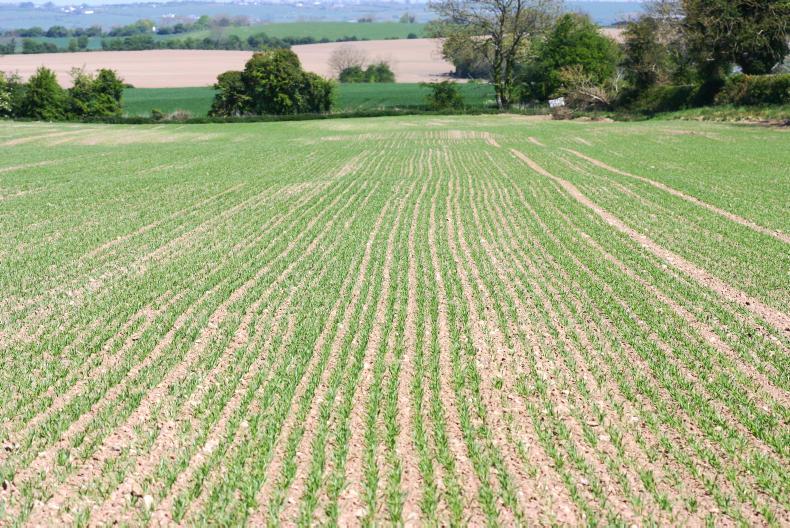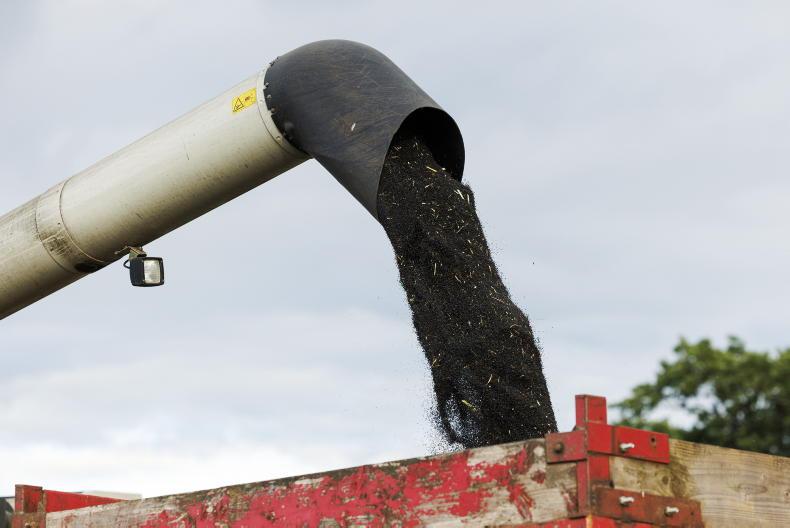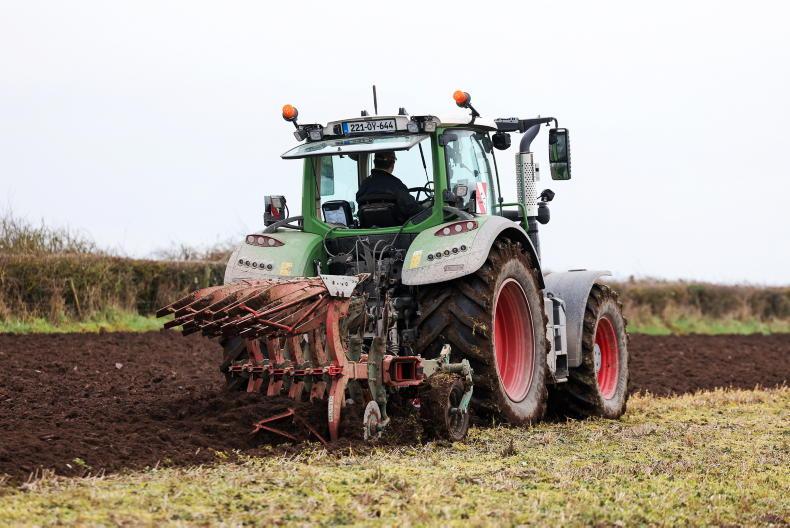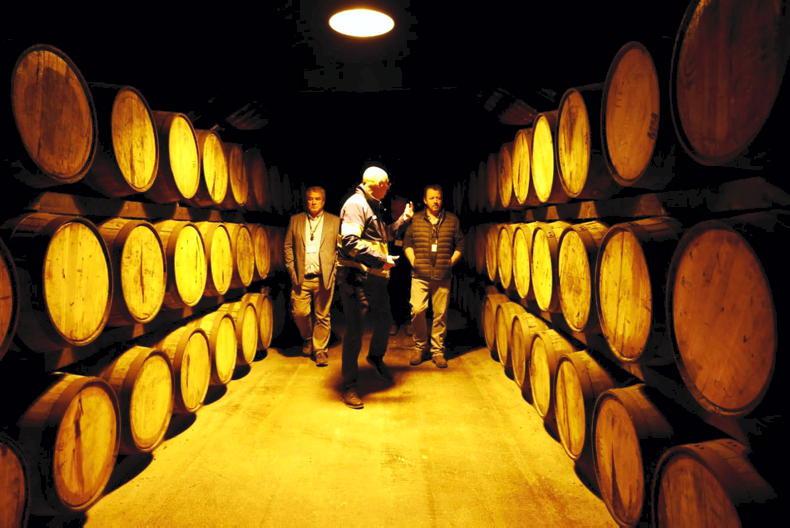The recent IFA malting barley information meetings promised an additional premium for distilling barley. This is a welcome development but the size of its welcome will be proportional to the level of the premium. All growers will also benefit from new price arrangements when MATIF runs below €175/t.
There is ongoing concern expressed as to the way that the malting barley price mechanism had developed in recent years and, in particular, the link to MATIF which has no direct bearing on the price of malt or Irish malting barley. That said, the negotiated changes do bring a number of key benefits for growers in 2018.
While there is ongoing criticism of the whole pricing mechanism, the malting barley committee stated that growers are currently in the middle of a two-year deal and cannot just walk away from it. However, the committee assured growers that future negotiations will be different so I recently met with them to discuss what they have delivered and how things may progress in future.
Some deductions removed
While the MATIF arrangement still forms the basis of the price agreement, there have been adjustments to the lower price bands. The new agreement has no deductions from MATIF prices of €170/t or lower (Figure 1) . So if MATIF is €168/t, the green malting barley price is €168/t. Compared with last year, this adds €9/t when the price is between €166/t and €170/t; €7/t when price is between €161 and €165/t; and €5/t if MATIF is €160/t or lower.
There is also a price benefit of €6/t when MATIF is between €171 and €175/t but a €5/t deduction still applies. A deduction of €12.50/t still applies when MATIF is between €176 and €180/t and €15/t for MATIF prices greater than €180/t.

The arrangement means that growers should aim to sell at MATIF values of €169 to €170/t as deductions apply above this. A sale when MATIF is €172/t represents a grower price of €167/t. So the grower price can still hover and fluctuate between €163.50 and €170/t as MATIF moves from €171 to €185/t.
The malting barley price link to MATIF wheat was introduced a number of years ago to provide some level of certainty and transparency for both growers and processors when the MATIF was trading above €200/t. It made sense for both parties back then but no one foresaw that prices would fall to the levels of recent years. But they did and they hurt growers badly.
That initial arrangement has been tweaked a number of times since, with most adjustment at the lower end of prices which have prevailed in recent years. But the deductions that apply at the upper end mean that MATIF will have to be €186/t before the grower price will rise to €171/t.
While no one on the grower side is happy with these arrangements, the committee said that this was all that could be negotiated at the time to help prices at the lower end.
Other alterations
There are a number of other elements to the 2018 deal.
An additional premium for the distilling portion of the contract. Maximum protein level for distilling barley is increased from 8.8% to 9.3%. Seed price is fixed at €520/t for all varieties and is interest free until harvest.Free ex-farm transport is to be provided from areas where depots were closed. This is dependent on a grower spending a minimum of €50/ac (ex VAT) on agrochemicals.The former depots in Tintern and Stradbally are to be reopened. Negotiations on the 2019 price arrangements are to begin after Easter.Mandate for distilling
The malting barley committee was been given a clear mandate by growers to push for a meaningful premium for distilling barley. This is regarded as essential to help offset the risk associated with possible yield loss when attempting to achieve low protein levels, plus the rejection risks involved.
Issues going forward
The malting committee, chaired by Mark Browne, made a lot of commitments to growers at the meetings.
Having price negotiations one year in advance is seen as a useful development, useful that this if it delivers. Growers want any new deal for 2019 to be in place this autumn so they can act on the outcome.
I asked the committee “if they considered no deal to be better than a bad deal for growers”. The response was unanimous and unambiguous – “a good deal or no deal”.
The first challenge is the delivery of a meaningful distilling premium for 2018. How quickly this is delivered by the maltsters and distillers will have a bearing on attitudes for further talks. In many respects, the growers’ negotiators have a difficult task because they need this industry to thrive but it cannot be a one-way street.
But while growers have a responsibility to the future of the sector, so do maltsters and the processors who use Irish barley to produce ingredients for booming Irish drinks exports.
Further negotiations
The IFA want to help enable expansion in the sector to prevent or minimise imports but their primary task is to ensure that growers are adequately rewarded for the risks they take and the quality of the product they produce.
Assuming that a new agreement can be negotiated, the committee stated that it will bring this deal to growers for discussion before it can be agreed. This may prolong the process but at least any final deal will fully belong to growers when that time comes.
Growers are facing higher production costs for 2018 as well as the risk that physical barley prices may exceed MATIF wheat this coming year.
Mark Browne said the committee will closely monitor MATIF prices because of the current direction of travel of futures versus physical prices. If physical feed barley prices continue to be higher than MATIF wheat, the current arrangement will not be fulfilling its objective.
At farm level the increasing availability of animal manures, plus the loss of worn ground for renting, threaten the ongoing availability of suitable land to grow distilling barley in particular. The committee also see a necessity to tighten up on how trading price is finalised for forward selling.
Welcome changes
The IFA welcomes the promise by Boortmalt to make malting barley the most profitable tillage crop. It also welcomes the joint venture between Boortmalt and Teagasc to help the flow of technical information and to have an independent arbitrator of the costs and profitability of malting barley.
Negotiations on a malting barley price deal from 2019 onwards are due to begin this month.A new distilling premium is promised and this needs to be in place by early May to be useful for 2018. The price deal alterations for 2018 will help grower prices when and if the MATIF price is below €175/t.
The recent IFA malting barley information meetings promised an additional premium for distilling barley. This is a welcome development but the size of its welcome will be proportional to the level of the premium. All growers will also benefit from new price arrangements when MATIF runs below €175/t.
There is ongoing concern expressed as to the way that the malting barley price mechanism had developed in recent years and, in particular, the link to MATIF which has no direct bearing on the price of malt or Irish malting barley. That said, the negotiated changes do bring a number of key benefits for growers in 2018.
While there is ongoing criticism of the whole pricing mechanism, the malting barley committee stated that growers are currently in the middle of a two-year deal and cannot just walk away from it. However, the committee assured growers that future negotiations will be different so I recently met with them to discuss what they have delivered and how things may progress in future.
Some deductions removed
While the MATIF arrangement still forms the basis of the price agreement, there have been adjustments to the lower price bands. The new agreement has no deductions from MATIF prices of €170/t or lower (Figure 1) . So if MATIF is €168/t, the green malting barley price is €168/t. Compared with last year, this adds €9/t when the price is between €166/t and €170/t; €7/t when price is between €161 and €165/t; and €5/t if MATIF is €160/t or lower.
There is also a price benefit of €6/t when MATIF is between €171 and €175/t but a €5/t deduction still applies. A deduction of €12.50/t still applies when MATIF is between €176 and €180/t and €15/t for MATIF prices greater than €180/t.

The arrangement means that growers should aim to sell at MATIF values of €169 to €170/t as deductions apply above this. A sale when MATIF is €172/t represents a grower price of €167/t. So the grower price can still hover and fluctuate between €163.50 and €170/t as MATIF moves from €171 to €185/t.
The malting barley price link to MATIF wheat was introduced a number of years ago to provide some level of certainty and transparency for both growers and processors when the MATIF was trading above €200/t. It made sense for both parties back then but no one foresaw that prices would fall to the levels of recent years. But they did and they hurt growers badly.
That initial arrangement has been tweaked a number of times since, with most adjustment at the lower end of prices which have prevailed in recent years. But the deductions that apply at the upper end mean that MATIF will have to be €186/t before the grower price will rise to €171/t.
While no one on the grower side is happy with these arrangements, the committee said that this was all that could be negotiated at the time to help prices at the lower end.
Other alterations
There are a number of other elements to the 2018 deal.
An additional premium for the distilling portion of the contract. Maximum protein level for distilling barley is increased from 8.8% to 9.3%. Seed price is fixed at €520/t for all varieties and is interest free until harvest.Free ex-farm transport is to be provided from areas where depots were closed. This is dependent on a grower spending a minimum of €50/ac (ex VAT) on agrochemicals.The former depots in Tintern and Stradbally are to be reopened. Negotiations on the 2019 price arrangements are to begin after Easter.Mandate for distilling
The malting barley committee was been given a clear mandate by growers to push for a meaningful premium for distilling barley. This is regarded as essential to help offset the risk associated with possible yield loss when attempting to achieve low protein levels, plus the rejection risks involved.
Issues going forward
The malting committee, chaired by Mark Browne, made a lot of commitments to growers at the meetings.
Having price negotiations one year in advance is seen as a useful development, useful that this if it delivers. Growers want any new deal for 2019 to be in place this autumn so they can act on the outcome.
I asked the committee “if they considered no deal to be better than a bad deal for growers”. The response was unanimous and unambiguous – “a good deal or no deal”.
The first challenge is the delivery of a meaningful distilling premium for 2018. How quickly this is delivered by the maltsters and distillers will have a bearing on attitudes for further talks. In many respects, the growers’ negotiators have a difficult task because they need this industry to thrive but it cannot be a one-way street.
But while growers have a responsibility to the future of the sector, so do maltsters and the processors who use Irish barley to produce ingredients for booming Irish drinks exports.
Further negotiations
The IFA want to help enable expansion in the sector to prevent or minimise imports but their primary task is to ensure that growers are adequately rewarded for the risks they take and the quality of the product they produce.
Assuming that a new agreement can be negotiated, the committee stated that it will bring this deal to growers for discussion before it can be agreed. This may prolong the process but at least any final deal will fully belong to growers when that time comes.
Growers are facing higher production costs for 2018 as well as the risk that physical barley prices may exceed MATIF wheat this coming year.
Mark Browne said the committee will closely monitor MATIF prices because of the current direction of travel of futures versus physical prices. If physical feed barley prices continue to be higher than MATIF wheat, the current arrangement will not be fulfilling its objective.
At farm level the increasing availability of animal manures, plus the loss of worn ground for renting, threaten the ongoing availability of suitable land to grow distilling barley in particular. The committee also see a necessity to tighten up on how trading price is finalised for forward selling.
Welcome changes
The IFA welcomes the promise by Boortmalt to make malting barley the most profitable tillage crop. It also welcomes the joint venture between Boortmalt and Teagasc to help the flow of technical information and to have an independent arbitrator of the costs and profitability of malting barley.
Negotiations on a malting barley price deal from 2019 onwards are due to begin this month.A new distilling premium is promised and this needs to be in place by early May to be useful for 2018. The price deal alterations for 2018 will help grower prices when and if the MATIF price is below €175/t. 










SHARING OPTIONS